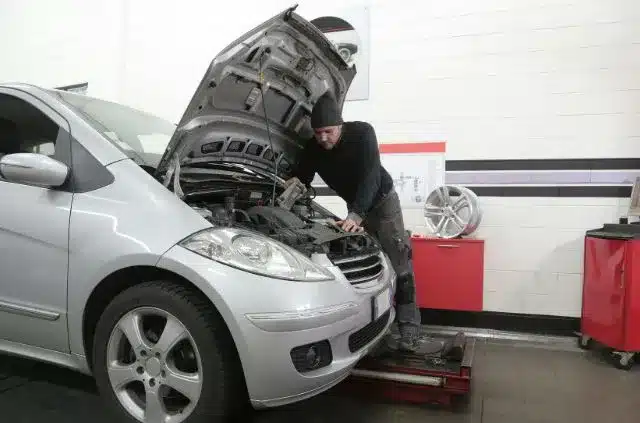Owning your very first car is a milestone. It signifies freedom, mobility, and the beginning of new adventures on the open road. However, along with this newfound independence comes a critical responsibility: proper vehicle maintenance. By investing time and effort in caring for your car, you’ll not only save money in the long run but also ensure a safe and comfortable driving experience. Below are some essential car maintenance tips, paired with industry facts, to help first-time vehicle owners keep their rides running smoothly.
Understand the Automotive Industry Landscape
Before diving into specific maintenance tasks, it’s helpful to understand the scale of the automotive industry. According to data from Zippia, 923,000 Americans work in motor vehicles and parts manufacturing. These professionals play a vital role in producing the components that keep your car running. With so many people dedicated to automotive production, it’s clear that vehicle care is a collective responsibility—extending well beyond the driver’s seat.
Follow the Recommended Oil Change Intervals
Regular oil changes are a cornerstone of vehicle upkeep. Fresh oil lubricates the engine’s internal components, reducing friction, preventing overheating, and removing contaminants. If you neglect oil changes, your engine may wear out quickly or even seize up.
According to AAA, it’s recommended to get an oil change every 5,000 to 7,500 miles, depending on your specific vehicle and driving habits. Be sure to consult your owner’s manual for the manufacturer’s guidelines, as newer cars often have more advanced engines and oil monitoring systems. Keep track of your mileage, and remember that factors such as stop-and-go traffic, extreme temperatures, and towing can shorten these intervals.
Check and Top Up Fluids Regularly
Oil isn’t the only fluid that needs consistent attention. Your car also relies on several other fluids to operate correctly:
- Coolant (Antifreeze): Prevents your engine from overheating and helps regulate temperature.
- Transmission Fluid: Ensures smooth shifting in both automatic and manual transmissions.
- Brake Fluid: Essential for optimal braking performance.
- Power Steering Fluid: Aids in steering control and stability.
Low fluid levels can lead to breakdowns and costly repairs. Make it a habit to inspect fluid levels monthly, or whenever you notice unusual performance (like rough shifting, difficulty steering, or squeaky brakes). Refer to your owner’s manual for the proper type of fluid and correct levels.
Maintain Your Tires
Healthy tires are crucial for safety and fuel efficiency. Here are key points to keep in mind:
- Tire Pressure: Underinflated tires can reduce fuel economy and increase the risk of blowouts. Check your tire pressure at least once a month using a reliable gauge, and keep them inflated to the manufacturer’s recommended PSI.
- Tread Wear: Worn-down treads reduce traction and increase stopping distance. You can use the “penny test” by inserting a penny into the tread with Lincoln’s head upside down—if you can see the top of Lincoln’s head, it’s time for new tires.
- Rotation and Alignment: Rotating your tires every 5,000 to 8,000 miles ensures even wear. Misalignment can lead to uneven tread wear and steering issues, so schedule an alignment if you notice your car pulling to one side.
Know Where to Go for Repairs and Service
Whether you need a routine service or a major fix, it’s essential to find the right place to handle your car’s maintenance. 75% of aftermarket auto repair is performed by independent auto repair shops, while 25% of the business lives with dealerships. Independent shops can often offer more personalized service and sometimes lower prices, while dealerships usually have technicians specialized in your specific make and model. Do some research, read reviews, and consider building a relationship with a trusted mechanic—this can make a world of difference when unexpected repairs crop up.
Inspect Your Brakes
Functional brakes are vital for safety. If you notice squeaking, grinding, or vibrations when applying the brakes, it’s time for an inspection. Brake pads, rotors, and brake fluid levels should be evaluated regularly, especially if you spend a lot of time in stop-and-go traffic or if you drive in mountainous areas.
Don’t Forget the Battery
A dead battery can leave you stranded without warning. Keep an eye on the battery’s condition by checking for corrosion on the terminals and ensuring connections are tight. Most car batteries last between three to five years. If you notice dimming headlights or sluggish starts, it may be time to have your battery tested or replaced.
Car maintenance may seem intimidating for first-time vehicle owners, but by following these tips—staying current on oil changes, monitoring fluid levels, keeping up with tire care, and visiting trusted repair shops—you’ll safeguard the longevity and reliability of your vehicle. Remember, the automotive industry employs hundreds of thousands of hardworking professionals who produce and support the parts that keep your car running. Honor their work and protect your investment by treating your vehicle with the care it deserves. Safe driving, and enjoy the journey!
Also Read: Priority Maintenance to Keep Classic Cars On the Road



